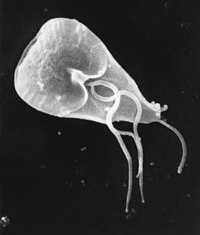
MicroRNA‐374b inhibits cervical cancer cell proliferation and induces apoptosis through the p38/ERK signaling pathway by binding to JAM‐2
Sign Up to like & getrecommendations! Published in 2018 at "Journal of Cellular Physiology"
DOI: 10.1002/jcp.26574
Abstract: Cervical cancer (CC) remains a highly prevalent cancer and mortality globally among women globally. The aim of the present study was to assess the ability of miR‐374b to regulate CC cells through JAM‐2, whilst exploring… read more here.
Keywords: mir 374b; jam; signaling pathway; p38 erk ... See more keywords

Eclalbasaponin I causes mitophagy to repress oxidative stress-induced apoptosis via activation of p38 and ERK in SH-SY5Y cells
Sign Up to like & getrecommendations! Published in 2019 at "Free Radical Research"
DOI: 10.1080/10715762.2019.1620937
Abstract: Abstract Oxidative stress accompanying excessive accumulation of reactive oxygen species (ROS) and mitochondrial dysfunction leads to the occurrence of neurodegenerative diseases. Our previous study showed that Eclalbasaponin I (EcI), a triterpene saponin isolated from Aralia… read more here.
Keywords: p38; p38 erk; sy5y cells; oxidative stress ... See more keywords

HSPA12A Stimulates p38/ERK-AP-1 Signaling to Promote Angiogenesis and Is Required for Functional Recovery Postmyocardial Infarction
Sign Up to like & getrecommendations! Published in 2022 at "Oxidative Medicine and Cellular Longevity"
DOI: 10.1155/2022/2333848
Abstract: Angiogenesis plays a critical role in wound healing postmyocardial infarction (MI). However, there is still a lack of ideal angiogenic therapeutics for rescuing ischemic hearts clinically, suggesting that a more understanding regarding angiogenesis regulation is… read more here.
Keywords: postmyocardial infarction; endothelial cells; p38 erk; hspa12a ... See more keywords

Toxic effects of thioacetamide-induced femoral damage in New Zealand white rabbits by activating the p38/ERK signaling pathway.
Sign Up to like & getrecommendations! Published in 2022 at "Physiological research"
DOI: 10.33549/physiolres.934803
Abstract: Thioacetamide (TAA) is widely used in the production of drugs, pesticides and dyeing auxiliaries. Moreover, it is a chemical that can cause liver damage and cancer. TAA has recently been identified to cause bone damage… read more here.
Keywords: damage; p38 erk; new zealand; white rabbits ... See more keywords

Giardia duodenalis Induces Proinflammatory Cytokine Production in Mouse Macrophages via TLR9-Mediated p38 and ERK Signaling Pathways
Sign Up to like & getrecommendations! Published in 2021 at "Frontiers in Cell and Developmental Biology"
DOI: 10.3389/fcell.2021.694675
Abstract: Giardia duodenalis, also known as Giardia lamblia or Giardia intestinalis, is an important opportunistic, pathogenic, zoonotic, protozoan parasite that infects the small intestines of humans and animals, causing giardiasis. Several studies have demonstrated that innate… read more here.
Keywords: signaling pathways; duodenalis; tlr9; mouse macrophages ... See more keywords

JNK, p38, ERK, and SGK1 Inhibitors in Cancer
Sign Up to like & getrecommendations! Published in 2017 at "Cancers"
DOI: 10.3390/cancers10010001
Abstract: Mitogen-activated protein kinases (MAP kinases) are a family of kinases that regulates a range of biological processes implicated in the response to growth factors like latelet-derived growth factor (PDGF), epidermal growth factor (EGF), vascular endothelial… read more here.
Keywords: erk sgk1; growth factor; jnk p38; p38 erk ... See more keywords

Icariin attenuates thioacetamide-induced bone loss via the RANKL-p38/ERK-NFAT signaling pathway
Sign Up to like & getrecommendations! Published in 2022 at "Molecular Medicine Reports"
DOI: 10.3892/mmr.2022.12642
Abstract: There is an increasing incidence of destructive bone disease caused by osteoclast proliferation. This is characterized by reduced bone mass and imbalance of bone homeostasis. Icariin (ICA), a flavonoid compound isolated from Epimedium, has anti-osteoporosis… read more here.
Keywords: ica; bone; p38 erk; bone loss ... See more keywords